Drug Addiction Treatment in Amherst
Amherst drug rehab for in-patient and out-patient drug detox and alcohol treatment. Addiction and chemical dependency recovery program near Amherst MA. Drug and Alcohol Rehabilitation techniques used in our Hampshire rehab and detox centers near Amherst. Programs for drug and alcohol abuse that include inpatient and outpatient recovery for addiction are explained as well as the benefits and drawbacks of both. Many health insurance providers will pay for alcohol and drug rehab. Call us to find out what options are available for you.
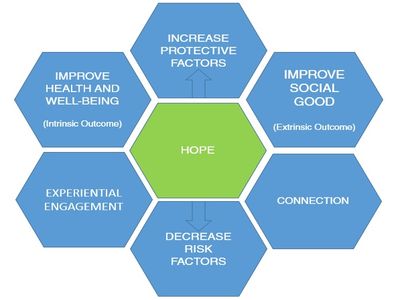
Mental Dependency – What Is Psychological Reliance?
The term psychology is typically indicated to describe behavioral procedures that connect to the feelings or the mind. The term mental dependency is typically implied to describe the psychological and also mental processes that are connected with the development of, as well as recuperation from, a material use problem or chemical dependency. Nonetheless, there can be no complete separation of emotion and also cognition from physiology. To suggest that “mental dependency” is not as severe as “physical dependency” represents a misconception; in reality, these two classifications do not exist as mutually special groups as well as for that reason could not be contrasted as if they exist separately from each other.
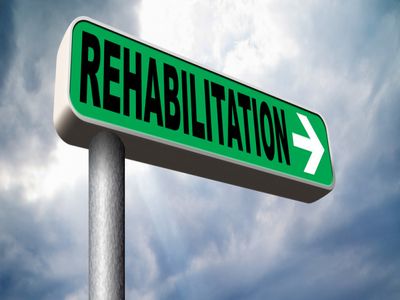
Materials related to Mental Dependency
The basic monitoring below is that all compounds of misuse are related to both emotional and also physical aspects of reliance; nonetheless, numerous sources separate the facets of the advancement of a material use problem and also the withdrawal process right into substances that are connected with withdrawal signs that are primarily mental in nature. Commonly, these compounds include:
A lot of stimulants, including drug and also Ritalin
A lot of hallucinogenic medications, such as LSD
Marijuana items (although there is mounting evidence that there might be a significant physical process of withdrawal that takes place in chronic customers of cannabis products).
Numerous inhalant items.
Many psychotropic medicines, such as antidepressant medicines.
Treat of mental reliance
One crucial distinction that can be made relating to the distinction between medications that are taken into consideration to lead to physical versus psychological reliance is that the withdrawal process from a few of the drugs that are thought about to be solid candidates for physical dependency, such as alcohol, benzodiazepines, as well as barbiturates, could lead to the growth of potentially fatal seizures. Nonetheless, this problem does not generally occur with withdrawal from opiate medicines, which are additionally thought about to be very literally addictive. The recuperation procedure for people that have actually developed substance usage conditions to these materials ought to be purely checked by a medical professional or psychiatrist who specializes in dependency medicine to identify any kind of prospective seizure task and quickly address it.
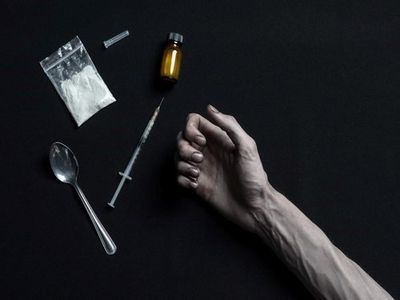
Types of Rehab in Amherst
Medicines
A number of medicines have been located to be efficient in treating dependency to opioids, alcohol, or pure nicotine in adults, although none of these medications have been accepted by the FDA to deal with adolescents. Newer substances continue to be studied for possibly dealing with substance usage conditions in adults and teenagers, however none various other than those noted below have actually shown conclusive outcomes.
Keep in mind that there are currently no FDA-approved medications to treat addiction to marijuana, cocaine, or methamphetamine in any age group.
Buprenorphine decreases or gets rid of opioid withdrawal symptoms, including drug desires, without producing the “high” or unsafe adverse effects of heroin as well as various other opioids. It does this by both activating and obstructing opioid receptors in the mind (i.e., it is what is referred to as a partial opioid agonist).

Methadone additionally stops withdrawal signs as well as minimizes food craving in opioid-addicted people by turning on opioid receptors in the mind (i.e., a full opioid agonist). It has a lengthy background of usage in therapy of opioid reliance in adults as well as is readily available in particularly licensed methadone therapy programs. In pick instances and in some States, opioid-dependent adolescents between the ages of 16 and 18 might be eligible for methadone treatment.
Residential Drug Rehabilitation in Amherst
Sixty-two percent of those that had specialist assistance in treating their addiction remained in healing for 3 years after treatment, compared to just 43 percent of those that didn’t obtain treatment. This reveals that obtaining expert treatment is important to reaching the ideal end result.
Residential Amherst drug rehab specifically is frequently much more helpful since it requires that the individual stay in therapy for the quantity of time essential to impact modification.
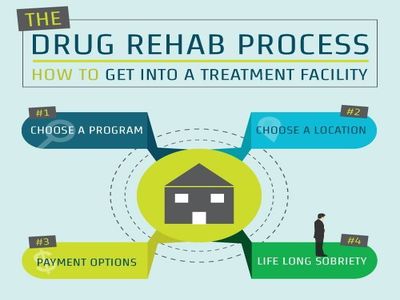
In the NIDA write-up it is stated that a vital element of medicine addiction treatment is remaining in treatment enough time to complete the various elements of the program, due to the fact that this makes it possible for people to emerge with the highest degree of self-confidence in their recently discovered abilities and also devices for staying in recuperation. As a result of this, each of the elements of a high-grade therapy program functions best when it is designed in order to help people make it through the whole therapy procedure.
Residential rehabilitation supplies 24-hour care in a setting where the focus is assisting individuals achieve as well as maintain healing from drug addiction. Due to this, these programs have the ability to supply a breadth of solutions that are more likely to help customers create capacities as well as devices to remain in healing well after leaving the program. These consist of:
Clinically sustained detoxification and also withdrawal, if required.
Medically sustained upkeep care, if needed.
Individual treatments, such as Cognitive Behavioral Therapy.
Family members or pairs therapy.
Structure skills and tools that are needed forever post treatment.
Follow-up treatment after the defined program ends.
Outpatient Treatment
Outpatient rehabilitation permits customers to live at home and take part in therapy at an outpatient center throughout the daytime. This type of program manages individuals extra liberty in therapy, providing clients the ability to keep a job and stay up to date with daily responsibilities in the house. Those simply beginning outpatient treatment could require day-to-day sessions with a therapist or scientific team, while those further along in healing (or with less extreme dependencies) could succeed with part-time sessions one or two times per week.
Outpatient programs typically last anywhere from one to 3 months, as this is the window of time where those in healing are most susceptible to regression. The length of time a customer spends in outpatient care relies on their development in recuperation, which considers their mental security and physical health and wellness.
An outpatient drug rehab program uses drug and alcohol treatment sessions that could be set up throughout various times throughout the week. This routine permits people to proceed with their routine duties and continue living at home, but they are required to look into therapy at their allotted times for therapy and medicines.
Healing
Healing is a goal of alcohol therapy, and recovery-oriented systems of treatment are being established to support that objective. People who are “in recovery” know just what it indicates to them and also just how important it remains in their lives. They need no formal definition, but also for the general public as well as those who research study, evaluate, as well as establish policies about addiction, healing is a concept that could sometimes seem uncertain.
Basically, recovery is a complicated and also vibrant process incorporating all the positive advantages to physical, mental and also social health that can take place when people with an addiction to alcohol or drugs, or their relative, obtain the aid they need.
Therapy
Therapy is a crucial part of drug abuse therapy for many individuals. Cognitive behavioral therapy, household therapy, and also various other treatment approaches can aid individuals recuperating from opioid dependency remain tidy.
12 Step Programs
The 12-Step ideology spearheaded by Alcoholics Anonymous is utilized by concerning 74 percent of therapy. Numerous addiction therapy programs supply choices to 12-Step approach for those who choose an even more secular foundation for therapy.
SMART Healing
SMART Recovery is an abstinence-based, not-for-profit company with a practical self-help program for people having problems with alcohol consumption as well as utilizing. It consists of several suggestions and also strategies to help you transform your life from one that is suicidal as well as unhappy to one that is constructive as well as satisfying. SMART Healing is not a spin-off of Alcoholics Anonymous. No person will certainly identify you an “alcoholic”, an “addict” or “infected” neither “powerless”, as well as if you do not count on a faith or spirituality, that’s fine, as well. We teach common sense self-help procedures designed to empower you to stay away as well as to create an extra positive way of life. When you prosper at following our strategy, you might finish from the program, or you could stay around to help others.
Client-centered approaches
In client-centered drug abuse treatment, you can aid decided aspects of your drug addiction therapy plan consisting of:
- The speed at which you progress.
- The size of your stay.
- The goals of your program.
Alongside professional staff the addict establishes exactly just what they want to get out of their stay. Each week, you and your personal specialist will review your medicine dependency therapy as well as decide whether or not you are reaching your goals, falling short or surpassing them and also change your therapy strategy as necessary. The partnering is really essential right here- your objectives are your roadmap with therapy.
Psychoanalysis
The psychoanalysis view suggests addiction is generally a disorder of self-regulation. Addiction is described as a defensive technique to stay clear of feeling of vulnerability or powerlessness. Drug abuse is a futile attempt to make up for inner vacuum without success. The addict attempts to make up using addictive actions for unpleasant subjective states of low self-worth, uncertainties and anxiety. The use of drugs provides a sensation of acceptance and also feeling of temporary self-assured. Addict replaces an imaginary globe, where he is in total control, for the real world, where he really feels pointless and out of hand. Repeated use medicines to get relief ends up being a way of living. Relief is short-lived, yet in the long-term substance abuse comes to be an end by itself. The addiction issue stops the individual from understanding about her distress, along with the growth of psychological capacity to self-soothe.
Regression avoidance
A prominent cognitive-behavioral method to dependency recuperation and also therapy has been Alan Marlatt’s (1985) Relapse Avoidance technique. Marlatt describes 4 psycho-social procedures pertinent to the addiction and also relapse procedures: self-efficacy, end result expectations, acknowledgments of causality, as well as decision-making procedures. Self-efficacy describes one’s capability to deal competently and properly with risky, relapse-provoking scenarios. Result expectancy refer to an individual’s expectations regarding the psychoactive impacts of an addictive substance. Acknowledgments of origin describe a person’s pattern of ideas that relapse to drug use is an outcome of inner, or instead exterior, short-term reasons (e.g., enabling oneself to earn exemptions when confronted with what are evaluated to be unusual scenarios). Decision-making processes are implicated in the regression process. Material use is the result of numerous choices whose collective impacts result in consumption of the intoxicant. Marlatt stresses some decisions- referred to as apparently irrelevant choices- may appear inconsequential to regression yet could actually have downstream implications that put the user in a high-risk situation.
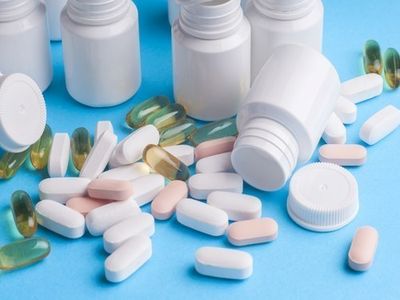
As an outcome of heavy road congestion, a recovering alcoholic may choose one afternoon to exit the highway and also travel on side roadways. If this person is able to employ effective coping techniques, such as sidetracking himself from his cravings by turning on his favorite music, after that he will certainly avoid the relapse risk (PATH 1) as well as heighten his effectiveness for future abstaining. If, nonetheless, he does not have dealing systems- for instance, he might start ruminating on his yearnings (COURSE 2)- after that his efficiency for abstinence will certainly decrease, his expectations of favorable results will boost, and also he could experience a lapse- an isolated return to substance intoxication.
Addiction and Dual Diagnosis Connection
When a person is detected with both a substance abuse problem and also a mental health and wellness issue, then it is labelled a Double Medical diagnosis. Common mental health disorders that tend to occur along with addiction include:
- Anxiousness disorders.
- Modest to serious depression.
- Character disorders.
- Mood conditions.
- Schizophrenia.
In lots of cases, signs of the psychological health and wellness condition show up. As they come to be a growing number of overwhelming, the person could try to “treat” those symptoms using various medications. For example, a patient who fights with anxiety could try to enhance their mood by taking heroin or prescription medicines. Patients that are living with stress and anxiety may attempt to calm themselves by smoking cannabis. Alternatively, a person managing an eating disorder may attempt to further their weight reduction attempts by abusing energizer medicines like drug or crystal meth.
In other instances, the medicine addiction precedes and also as a result of persistent substance abuse, psychological health and wellness concerns can establish later due to the fact that drug use changes brain feature over time.
Sober Living Residence
Sober living residences are team houses for those recouping from a dependency. Most of these residences are independently possessed, although some group homes are had by businesses and might also be possessed by charity organizations. Residences are generally located in peaceful locations to assist make certain a serene environment for people in very early recovery.
These types of homes are different from rehab centers; rehab facilities generally provide an even more extensive healing experience as well as provide citizens much less flexibility. Individuals that stay in sober living facilities can generally come and go as they please as long as they adhere to particular regulations. Sober living houses could need citizens to be home by a specific time or to go to work during the day. Locals may also be subject to periodic medicine testing to demonstrate continuous soberness.
